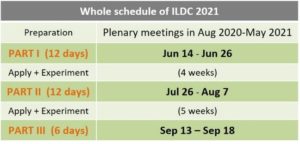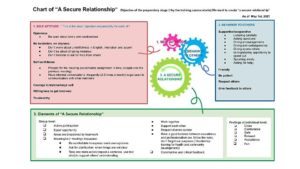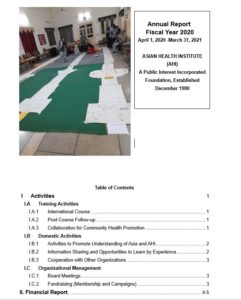English Newsletter No.112: Our learning journey continues
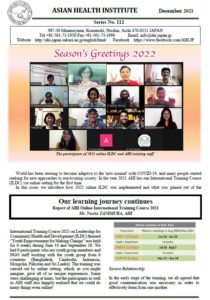
AHI English Newsletter No.112 is uploaded. It reports how 2021 online ILDC was implemented and what was gained out of the experience.
Download full pages NL112
Our learning journey continues
International Training Course 2021 on Leadership for Community Health and Development (ILDC) themed “Youth Empowerment for Making Change” was held for 6 weeks during June 14 and September 18. We had 9 participants who are youth group members and NGO staff working with the youth group from 6 countries (Bangladesh, Cambodia, Indonesia, Mongolia, Pakistan and Sri Lanka). The training was carried out by online setting, which, as you might imagine, gave all of us unique experiences. Some were challenging at times, but the participants as well as AHI staff also happily realized that we could do many things even online!
Secure Relationship
In the early stage of the training, we all agreed that good communication was necessary in order to effectively learn from one another.
We went on discussing what would require to have good communication among us. Obviously, it is not just to speak a lot or be friendly. We looked into attitude and behaviors which make up good communication, and came to realize that feeling secured in relationship greatly affects to communication (refer to “Secure Relationship Chart”).
We spent so many hours conceptualizing it to understand the correlation between the elements, and then went back and forth to refer to the chart many times by putting them into practice, reflecting oneself, receiving feedback from the others. In fact, it “travelled” with us all the way to the end of the training.
As the first part of the session began, I was expecting to finally learn strategies to tackle local issues. However, AHI repeatedly brought up the topic of secure relationship. I was thinking to myself saying (in my mind), “I know that’s important. I got it. Enough to talk about it. Let’s move onto discussing our community activities!!”
Then finally time came for us to start talking about the difficulties and issues in the communities and what we were aiming for. As we dug into the reasons for difficulties, surprisingly enough, we always came across the things described in secure relationship! In other words, we realized that the first thing we needed to work on was relationship building. What was so unique was that we had discovered it through the learning process together.
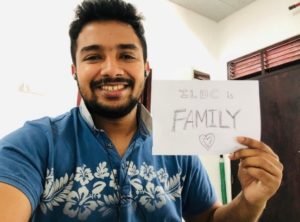
Everyone shares the roles of session management – that’s how it works in ILDC training. But things were just a little bit (?) more challenging when it came to online! First, the participants discussed and agreed that there were 5 roles to share. Presenter, moderator, and time-keeper are the “standard” ones. This time, we had additionally online-specific roles; captioning and Miro (online whiteboard) operator. Session management requires teamwork – planning, preparing, cooperating, and handling the unexpected together.
At the beginning, everyone was busy doing his/her own part and real team work was not yet happening.
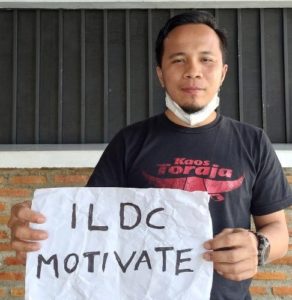
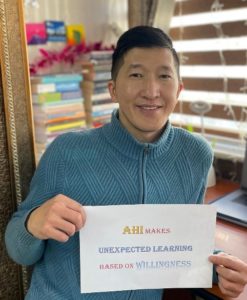
At first, I had thought that AHI staff were the ones to put us on track when something unexpected happened in session management. But one day, without any advanced notice, I was suddenly asked to take over the moderator role of my co-participant Sarna who had trouble joining Zoom due to the internet problem that morning I was literally thrown into the situation where I had to take the challenge with no preparedness.
It was a tough experience for me, but it helped me realize why the participants, not AHI staff, were asked to take charge in ILDC—it is participatory approach. Each takes the role and shares responsibility. Everyone participates and owns the learning experiences.
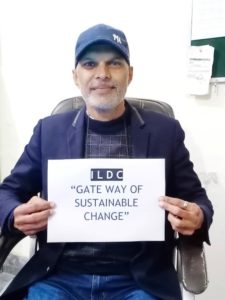
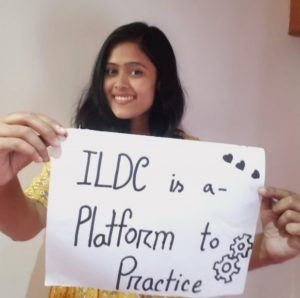
At first, I was not confident about myself. Having a hearing impairment, I was not sure about whether I could carry out the role assigned to me. One time, I was given an opportunity to be a moderator – and it was a debate session, on top of it! I was nervous, but I said to myself, “It was OK not to be “perfect”.
ILDC is an opportunity for practicing what I’ve never done. It is OK to make mistakes”. I was happy and eager to get critical feedback from the other participants on how I did it. I think that the kind of relationship we had been building together made me feel that I could learn from trying and getting help and feedback from others.
Getting out of comfort zone
Learning from each other takes both sides. It can be achieved only when each person takes challenges, expresses own opinions, asks and answers questions, and seeks help from others. Often times, it means for one to get out of own comfort zone.
Ama, a regional youth leader is rather introverted and the type of person who works hard for what she sets her mind to do. During the course period, her school exam schedules kept changing affected by COVID-19 and she had to miss several sessions.
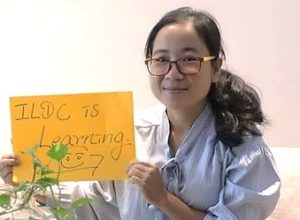
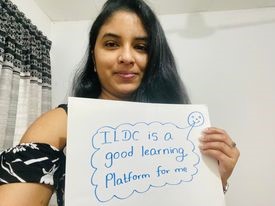
I watched the recordings of the sessions I missed and wrote down what I had noticed or thought was important. I was trying to catch up as much I could, but I was doing it only by myself or with my partner participant, Pramo’s help.
But in fact, maybe I was only escaping from interacting with other participants and convincing myself with self-effort. I always thought that I could ask Pramo for help when I needed. But the AHI staff repeatedly told me not to rely too much on Pramo and asked for MY opinions rather than just agreeing with Pramo.
Toward the end of the training, I was given an opportunity to take a moderator role next day. I took it as my last chance in this training to try what I could do on my own. Beforehand, I talked to the other participants with different roles so that we could be prepared better as a team. I also communicated with the presenter so that I could plan how I would facilitate the discussions. During the session, I shared my own opinions because I am the only one who knows my thoughts and experiences. This experience took me courage but I now know that learning from one another is two-ways and needs participation of everyone.”
ILDC as a laboratory
Everything that happened during the training – – making mistakes, building relationships, trying things for the first time, providing support to and being helped by others, seeking for clarity for questions and confusions, — are considered “experiments” that can be applied to actual community work. Experiments should not end when the training finished. It is important to turn those experiments into useful experiences in the field.
And some participants have already started to apply their learnings from ILDC into their activities. Here are the comments from the sending organizations of the participants.
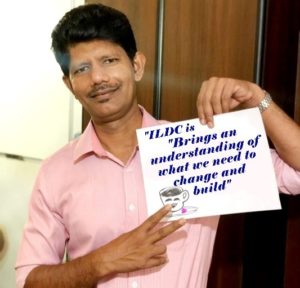
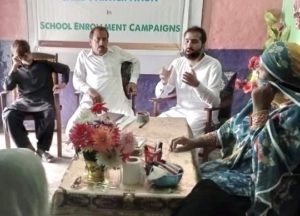
Mr. S. Mujahid Hussain, ILDC 2016,
Research, Advocacy and Social Training Institute (RASTI), Pakistan (Sending organization of Mr. Hasham Mehmood, Youth in Positive Action (YIPA))
One of the things I’ve noticed about the change in Hasham is that he now tries to be more considerate of and to look about the youth members who don’t seem keeping up with what’s been discussed in the meeting for example.
He consciously talks to them and tries to involve them in the discussion or sharing some roles. I think this attitudinal change of him has come from his own experience in ILDC. He experienced to be supported by others in the participatory-style training like ILDC.
Ms. Taslima Akter, ILDC 2015,
Centre for Disability in Development (CDD), Bangladesh
ILDC experience has certainly given Sarna positive affect. She recognizes the importance of expressing her needs and proposing ideas and suggestions.
Before, she rarely spoke in our daily morning briefing, but now, when she doesn’t understand something, she says so and asks questions. She proposes others what she needs in order for her to actively participate in online meetings; e.g., asking to type texts in the chat box and to utilize colored cards in a way to express opinions (green for yes, red for no, yellow for not sure, for example). She also applies such tools in her own training and the degree of the trainees’ participation has increased, which has raised her confidence and motivation. She practices what she learned. I am happy to see her trying further and keeping her learning alive.
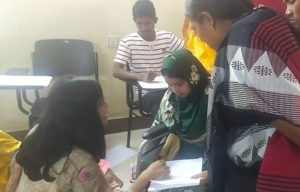
On the last day of the training, all the participants agreed that learning was a continued journey. Everyone has different ways to apply and practice the learning in their own respective field and activities.
Our learning journey continues…
- Categories
- Newsletter

